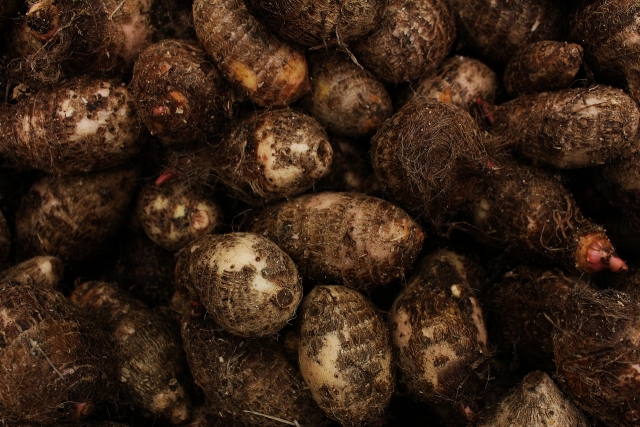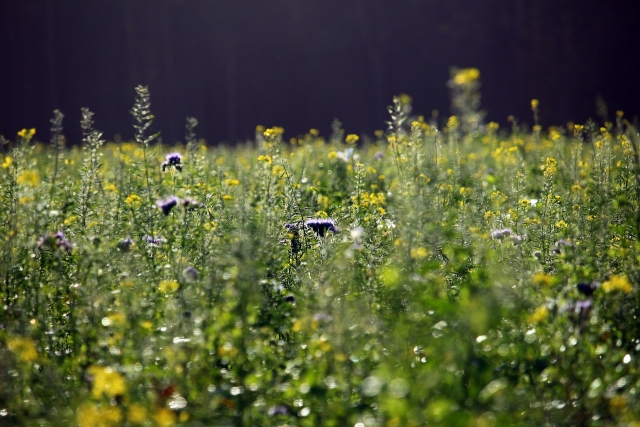
TYM tractors can support every step of arable farming, from tillage to harvesting. Get the most yield with enhanced transmission controls and powerful hauling capabilities on your tractor. Harvest mature crops while minimizing damage to developing ones with the right kind of tools and power.
We know the significance of the harvesting period for farmers and agricultural businesses, but how do different cultures around the world mark this important season? Here are some of the biggest harvest celebrations around the world held throughout the year.

Chuseok in Korea
Chuseok, also known as Hangawi, is one of the most important and festive holidays of the year in Korea. Chuseok is celebrated on the fifteenth day of the eighth month of the lunar calendar, which usually falls on September or October. The official Chuseok holiday falls on one day, but the day before and after Chuseok are designated public holidays, allowing Koreans to return to their hometowns to celebrate with their extended families and participate in ancestral rites.
The origins of Chuseok can be traced back to Korea’s past as an agrarian society. On this day, families gathered under a full harvest moon to give thanks to their ancestors for the plentiful harvest. Just as they did in the past, Koreans celebrate Chuseok by making special foods, particularly a rice cake called songpyeon. Making songpyeon symbolizes the wrapping up of hopes and dreams, as it is made by kneading rice powder and a sweet filling into small half-moon shapes. Other Chuseok traditions include frying and eating savory pancakes called jeon and giving gifts that range from pricey seasonal fruits to boxed Spam sets.

Thanksgiving in the United States
Thanksgiving is an annual holiday in the United States celebrated on the fourth Thursday of November. In modern times, Thanksgiving is celebrated as a harvest festival and a day of giving thanks. What distinguishes the American Thanksgiving from other harvest festivals around the world is that the traditions are linked specifically to the Pilgrims and settling in Plymouth Colony.
In 1621, the Plymouth colonists and the native Wampanoag shared an autumn harvest feast that is acknowledged today as one of the first Thanksgiving celebrations in the British colonies. Now, Americans gather with their families to celebrate Thanksgiving with traditional fare that includes turkey, cranberries, and pumpkin pie. Large-scale events like parades and football games also have become associated with the holiday. The first Thanksgiving was a celebration of a bountiful harvest, thanks to the Wampanoags who taught the colonists how to plant crops, but it was also the beginning of an extended period of conflict between Native Americans and Europeans. While some may celebrate this holiday, many Native Americans see Thanksgiving as a "National Day of Mourning.”

Homowo Festival in Ghana
Homowo Festival is a harvest festival celebrated by the Ga people of Ghana in the Greater Accra Region. The festival dates back to the 16th century when the Ga people suffered a great famine. When the rains returned, the people celebrated their triumph over hunger with a feast. Now the festival starts in the month of August with the planting of crops before the rainy season starts. Homowo literally means “hooting at hunger”.
The celebration begins with the planting of staple crops like yams and maize. This is followed by festivities including face painting and traditional song and dance. Food plays an important role in this festival with mashed yams with hard boiled eggs dominating the feast. During Homowo, yams are taken from the ground and are carried to the village to be blessed by the chief. The festival culminates in a big feast with dancing and singing to the sounds of drums.

Festas Juninas in Brazil
The Festa Junina is a millennia-old celebration deeply rooted in Brazilian culture. Typically held in June, the festivities have evolved over the centuries but remain closely tied to harvest rituals. The Festa Junina date back to the 12th century and originated from festivities that honored the Roman goddess of marriage, birth, and women. The ancients celebrated the goddess to bring forth bountiful harvests, and the festival was later influenced by European summer solstice celebrations, with many of the traditions introduced by the Portuguese during colonization.
In Brazil, each region has its own specialty when it comes to food and festivities, but the quintessential Festa Junina celebrations include traditional dishes, fireworks, and the unmissable colorful flags hanging over the streets.

Basant Panchami in India
Basant Panchami (also known as Saraswati Puja) is a Hindu festival that falls annually in January or February that marks the onset of spring. Some celebrate it to honor Goddess Saraswati, the goddess of knowledge, music, and learning, while others celebrate the harvest and the arrival of spring. During Basant Panchami, women don a yellow sari, the color the Goddess wears. Yellow is symbolic of the mustard crop that is often harvested during the festival.
The Goddess Saraswati is not always associated with Basant Panchami in all regions. Some regions celebrate it to mainly honor the Gods that have blessed them with a bountiful harvest. Various dishes are prepared for the feast and the whole family comes to celebrate—at home and beyond. Basant Panchami is not only a festival, but believed to be an auspicious day to start new things in life, so many people move to a new home or start a new business or undertaking during this time.
From the actual labor of harvesting crops to post-harvest festivities, tractors are an essential part of this seasonal tradition, on and off the field. To find out more about the different applications of TYM tractors in our lives, visit explore.tym.world.